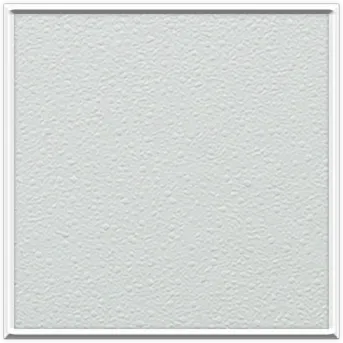Dec . 14, 2024 20:17 Back to list
Rigid Mineral Wool Insulation Board for Efficient Thermal and Acoustic Performance
Rigid Mineral Wool Insulation Board A Comprehensive Overview
Rigid mineral wool insulation board has emerged as a preferred choice for insulating various structures, owing to its remarkable thermal performance, sound absorption capabilities, and fire resistance. This article aims to explore the characteristics, benefits, and applications of rigid mineral wool insulation along with its environmental implications.
What is Rigid Mineral Wool Insulation?
Rigid mineral wool, often referred to as rock wool or stone wool, is made from natural volcanic rock, basalt, or other minerals. These materials are melted at high temperatures and then spun into fibers, which are then compressed into rigid boards. The result is a high-density, durable insulation product that provides excellent thermal and acoustic insulation properties.
Key Characteristics
1. Thermal Performance Rigid mineral wool insulation boards offer high thermal resistance (R-value), which contributes significantly to energy efficiency in buildings. This high R-value ensures that cold air stays out during winters and keeps the interiors cool during hotter months, reducing the need for excessive heating or cooling.
2. Fire Resistance One of the standout features of mineral wool insulation is its exceptional fire resistance. It can withstand temperatures of up to 1,000 degrees Celsius (approximately 1,832 degrees Fahrenheit), making it an ideal choice for fire-prone areas. It does not burn, nor does it emit toxic smoke, making it a safe option for insulation.
3. Sound Absorption Rigid mineral wool boards are also effective sound insulators. Their fibrous structure traps sound waves, significantly reducing noise transmission between rooms or from outside, making it suitable for residential, commercial, and industrial settings.
4. Moisture Resistance Unlike some organic insulation materials, mineral wool does not absorb moisture, which means it remains effective over time and does not promote mold growth, an essential consideration for maintaining indoor air quality.
Benefits of Rigid Mineral Wool Insulation Boards
- Energy Efficiency By minimizing heat loss and gain, mineral wool insulation helps reduce energy consumption in buildings, thereby lowering utility bills for homeowners and businesses alike.
rigid mineral wool insulation board

- Sustainability Many manufacturers produce mineral wool boards using recycled materials, such as industrial waste, contributing to a more sustainable building practice
. Additionally, mineral wool is natural and non-toxic, enhancing indoor environmental quality.- Versatility These insulation boards can be used in various applications, including wall cavities, roofs, floors, and ductwork insulation. Their rigidity makes them easy to handle and install, reducing labor costs.
- Durability Rigid mineral wool boards are resistant to pests, decay, and physical damage. This durability ensures that they maintain their insulating properties over time, offering long-term benefits.
Applications
Rigid mineral wool insulation boards find extensive applications across sectors. In residential buildings, they are frequently used in walls and ceilings to improve energy efficiency and acoustics. In commercial settings, they are utilized for insulating HVAC systems or as part of fire-resistant structures in high-rise buildings.
Industrial applications are also notable; mineral wool insulation offers superior thermal protection for equipment, piping, and more, contributing to safety and energy savings in manufacturing facilities.
Environmental Considerations
The production of rigid mineral wool insulation boards is energy-intensive, and like any manufactured product, it has an environmental footprint. However, when considering the entire lifecycle, the energy saved through improved insulation can outweigh the initial energy expenditure.
Moreover, the recyclability of mineral wool is a significant advantage, as it can be repurposed for various applications at the end of its lifecycle, reducing waste.
Conclusion
Rigid mineral wool insulation boards are a premium choice for effective thermal and acoustic insulation, known for their fire resistance and durability. Their versatility and energy efficiency make them suitable for a wide range of applications, from residential to industrial. Choosing mineral wool insulation not only contributes to a comfortable indoor environment but also promotes sustainability in building practices, making it a wise choice for modern construction. As energy efficiency and safety remain paramount in building design, rigid mineral wool insulation boards will continue to play a crucial role in building technologies.
-
Durable Ceiling T Grid Systems | Easy InstallationNewsAug.29,2025
-
PVC Gypsum Ceiling: Durable, Laminated Tiles for Modern SpacesNewsAug.28,2025
-
Pvc Gypsum Ceiling Is DurableNewsAug.21,2025
-
Mineral Fiber Board Is DurableNewsAug.21,2025
-
Ceiling Tile Clip Reusable DesignNewsAug.21,2025
-
Ceiling T Grid Modular DesignNewsAug.21,2025







